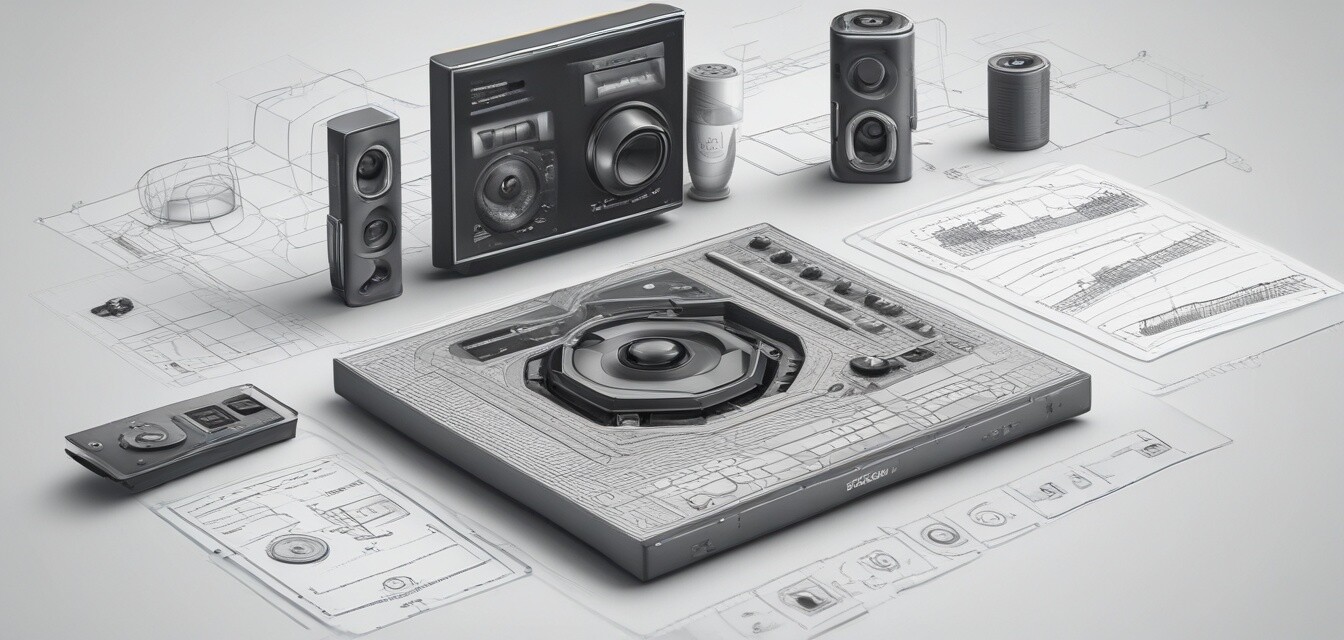
The Role of Consumer Feedback in Audio Product Design
Key Takeaways
- Consumer feedback shapes product features and design.
- Real-world usage insights lead to better sound quality.
- Engaging consumers in the design process fosters loyalty.
- Feedback can predict product success and market trends.
In the fast-paced world of audio product development, understanding the consumer's voice has never been more critical. From Bluetooth speakers to advanced home theater systems, consumer feedback plays a pivotal role in shaping sound quality, design aesthetics, and overall functionality. Let's delve into how the power of reviews and user experiences influences the marketplace and propels innovation in audio technology.
1. Understanding Consumer Feedback
Consumer feedback encompasses both quantitative and qualitative data collected from users after they purchase and use audio products. This information can range from star ratings and numerical scores to detailed reviews expressing personal satisfaction or dissatisfaction with the product. Key channels for gathering this information include:
- Online reviews on marketplaces like Amazon
- Social media comments and posts
- Surveys conducted by manufacturers
- Focus groups involving target demographics
2. Impact on Product Design
Consumer feedback significantly influences different aspects of product design. Here are crucial factors that get shaped through feedback:
| Aspect | Influence of Feedback |
|---|---|
| Sound Quality | Direct feedback about bass response, clarity, and volume can guide tweaks to speaker technology. |
| Design | Customer preferences on aesthetics lead to more appealing designs tailored to consumer tastes. |
| Features | Requests for specific features consolidate product offerings, like voice assistants or Bluetooth connections. |
| Portability | Consumer insights on ease of transport contribute to designs in portable speakers. |
3. Real-World Use Cases
Let's explore how brands effectively utilize consumer feedback to enhance their audio products:
- Beta Tests: Companies often release beta versions of products to select consumers for testing and feedback before the official launch.
- Continuous Improvement: Based on reviews after a product release, brands frequently update or modify features in subsequent models.
- Accountability: By responding to consumer complaints or suggestions publicly, brands show they value user input, enhancing their reputation.
4. The Future of Audio Product Design
As technology evolves, the integration of consumer feedback in product design will only become more sophisticated. Considering advancements in AI and machine learning, manufacturers can analyze vast amounts of data to extract actionable insights.
Trends to Watch
Here are anticipated trends stemming from consumer feedback:
Tips for Consumers
- Leave detailed reviews to help future buyers and manufacturers.
- Participate in feedback surveys offered by brands.
- Engage in online forums to share experiences and suggestions.
5. Conclusion
In summary, consumer feedback acts as a vital compass guiding audio product design. By understanding user experiences, manufacturers can adapt and innovate based on the needs and desires of the market. This collaborative relationship not only enhances product quality but strengthens consumer trust and brand loyalty.
Pros
- Improved product quality driven by user insights.
- Enhanced customer loyalty through engagement.
- Ability to anticipate market trends based on collected data.
Cons
- Over-reliance on feedback might stifle creativity.
- Negative feedback can lead to rushed changes that may not reflect consumer needs.
To stay updated with the latest news and trends in audio technologies, don't forget to check our blog regularly! Explore more about buying guides, industry news, and our top picks for various audio products.